

EDI 2022 Annual Report
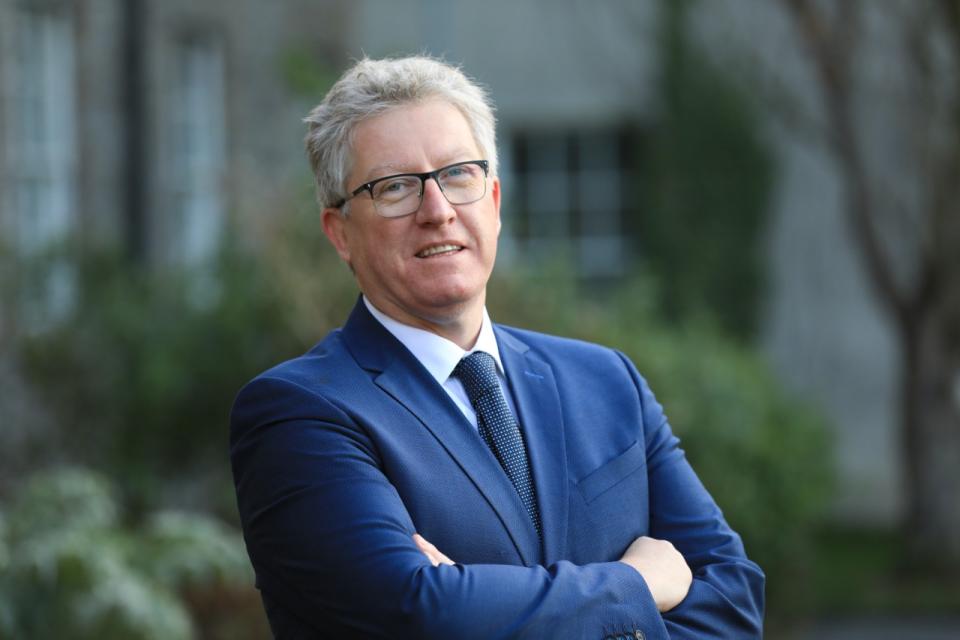
Professor Dáire Keogh, President of DCU
Introduction from Prof Dáire Keogh, President of DCU
When we talk about the promotion of Equality, Diversity and Inclusion, we often hear it described in terms of being a ‘journey’. Looking back on the past year, it is gratifying to see the University’s positive direction of travel, as we work together to ensure that the DCU community is a place where everyone has a voice and where we can all flourish.
If we measure our progress against the Athena Swan framework, then the University achieved a great deal in 2022. During the year, DCU Business School, the School of Mathematical Sciences, the School of Biotechnology and the School of Physical Sciences attained an Athena Swan Bronze Award. At an institutional level, DCU continued to implement its ambitious gender action plan, with oversight from the Athena Swan University Self-Assessment Team (SAT). The next step will be the development of the University’s plan for the Athena Swan Silver Award, which will address a broader range of actions across the EDI spectrum.
DCU’s collaboration with other Higher Education Institutions resulted in a successful pilot of the Vista programme, a pilot self-development initiative for women at mid-career stage, both professional and academic, in the sector. Meanwhile, the engagement of female DCU staff in the Aurora programme and the Preparing for Academic Advancement (PAA) programme signalled colleagues’ continuing interest in leadership and self-development. It is perhaps no coincidence, then, that we saw an overall increase in female representation in senior academic positions in 2022. The report also provides a summary of DCU’s first Gender Pay Gap report.
We certainly have more to do regarding this metric, but we can find some comfort in the fact that the gap is significantly below the national average.
As I said at the outset, the creation of a university community that is egalitarian, diverse and inclusive is a long-term project, a journey. It is one that requires the active commitment of staff and students to living the DCU values. I am delighted to see the high level of engagement with our EDI training and development opportunities, covering topics from Anti-Racism to Autism Awareness to LGBTQ+ Allyship. It is truly encouraging to see the way in which DCU staff have embraced these opportunities, with over 530 attendees during the year. We’re not there yet but we continue to travel in the right direction.
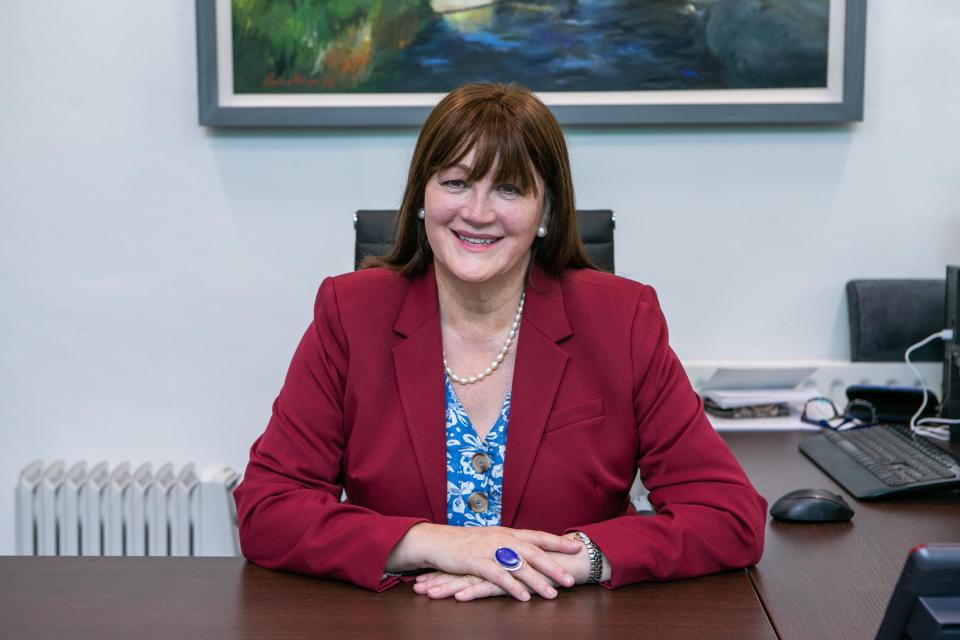
Professor Anne Sinnott, Deputy President of DCU
Professor Anne Sinnott, Deputy President and Vice-President for Diversity and Equality
In 2022, our dedication to promoting EDI continued to be woven into the fabric of our institution, ensuring that all members of the DCU community flourish in an environment that values and respects the richness of human diversity.
With each milestone achieved, we remain inspired by the dedication and passion of our staff. Your contributions, both large and small, have helped shape an environment where diversity is embraced and where every voice finds its resonance. Let's continue to collaborate, learn, and celebrate the strides we make towards a more inclusive DCU.
Background
As a University driven by ‘People First’ principles, DCU is deeply committed to promoting Equality, Diversity and Inclusion (EDI). Our aim is to build a shared culture, across our full staff community, that is diverse, open and inclusive, where all perspectives, backgrounds and experiences are valued. At the heart of our Strategic Plan 2017 – 2022 “Talent, Discovery and Transformation” are nine Strategic Goals and in line with Goal 5 ‘To Value and Develop our Staff Community’ the university aims to establish and develop this shared culture (‘One DCU’). A culture that is inclusive at all levels and in every system and process, where faculty, staff and students demand the highest standards from each other.
This report spotlights and celebrates many of the different ways that the values of equality, diversity and inclusion are present in the work of teams across DCU. It would not be possible to capture the full extent of DCU’s staff dedication to EDI, but we hope this snapshot serves to demonstrate the positive journey that DCU is on. As our University continues to go from strength to strength, we hope you will keep us informed of the important work that you do and share your stories from 2023 so we can celebrate these in the coming months.
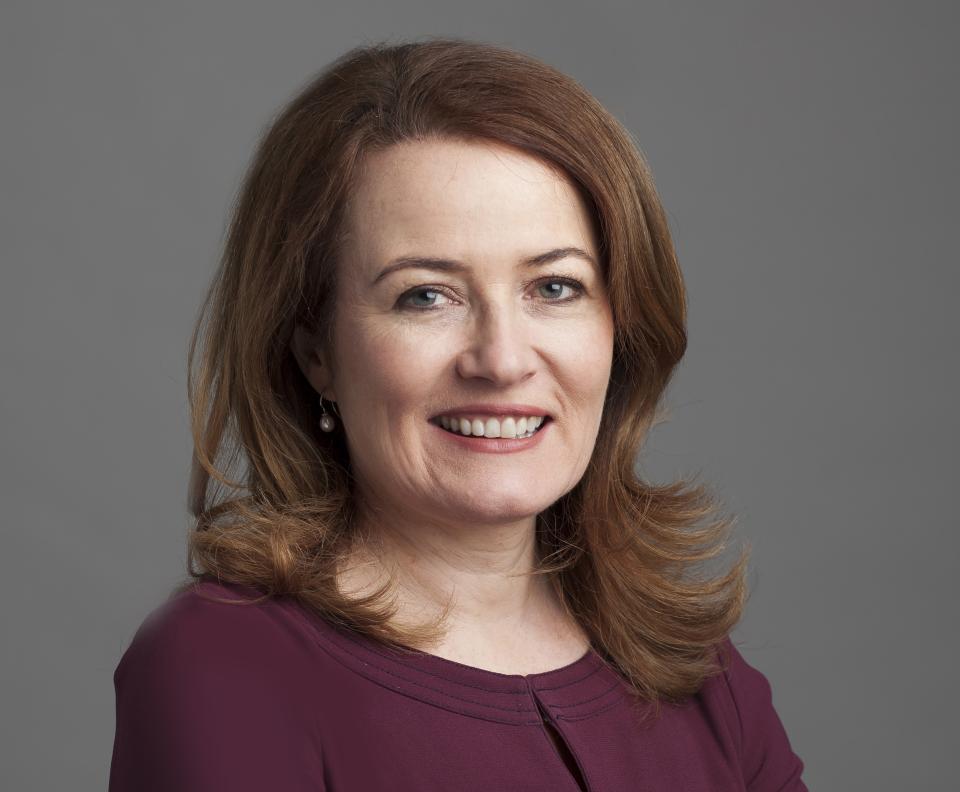
Rachel Hussey
DCU’s Equality, Diversity and Inclusion Committee, a subcommittee of the Governing Authority, was established in January 2021. The role of the committee is to ensure an appropriate governance structure to provide clear, consistent leadership and accountability for equality, diversity and inclusion across DCU.
The EDI sub-Committee plays a key role in keeping the Governing Authority updated on the EDI work across the university and in supporting the efforts being made around EDI. 2022 was a year of great activity, including a strong focus on staff engagement, the Athena Swan application, the gender pay gap, the public sector duty and a continued focus on data.
In our report for 2022, the sub-Committee recommended that management at the university should continue to build diversity considerations into all decision-making processes and continue to measure data so that progress can be captured and reported on. We also recommended that management continues to champion diversity and encourage education and awareness activity across EDI. Our focus for 2023 includes the Athena Swan application, and the implementation of the HEA Race Equality Principles for Higher Education.
I would like to thank the members of the sub-Committee for their hard work and continued focus on this area of vital importance to the university.
Rachel Hussey (Chair)
Great progress was made at department level throughout 2022, with a total of four Schools attaining an Athena Swan Bronze Award. The Business School was conferred an award in March 2022, followed by the School of Mathematical Sciences and School of Biotechnology in August 2022, and School of Physical Sciences in November 2022. Several other Faculties and Schools engaged with the Athena Swan self-assessment process in 2022 with the aim to submit an application for an Award throughout 2023-2024.
At an institutional level, DCU continued to implement its ambitious gender action plan 2020 - 2024, with oversight from the Athena Swan University Self-Assessment Team (SAT). The SAT, chaired by Prof. Anne Sinnott (Deputy President and VP for Diversity and Equality), consisted of key representatives and Athena Swan champions from across the university and included representatives from all staff categories and campuses. Members of the SAT held the term from September 2021 to December 2022. A new SAT will be established in January 2023 to turn the focus on carrying out the rigorous self-assessment process to develop an application and action plan for an Athena Swan Silver Award.
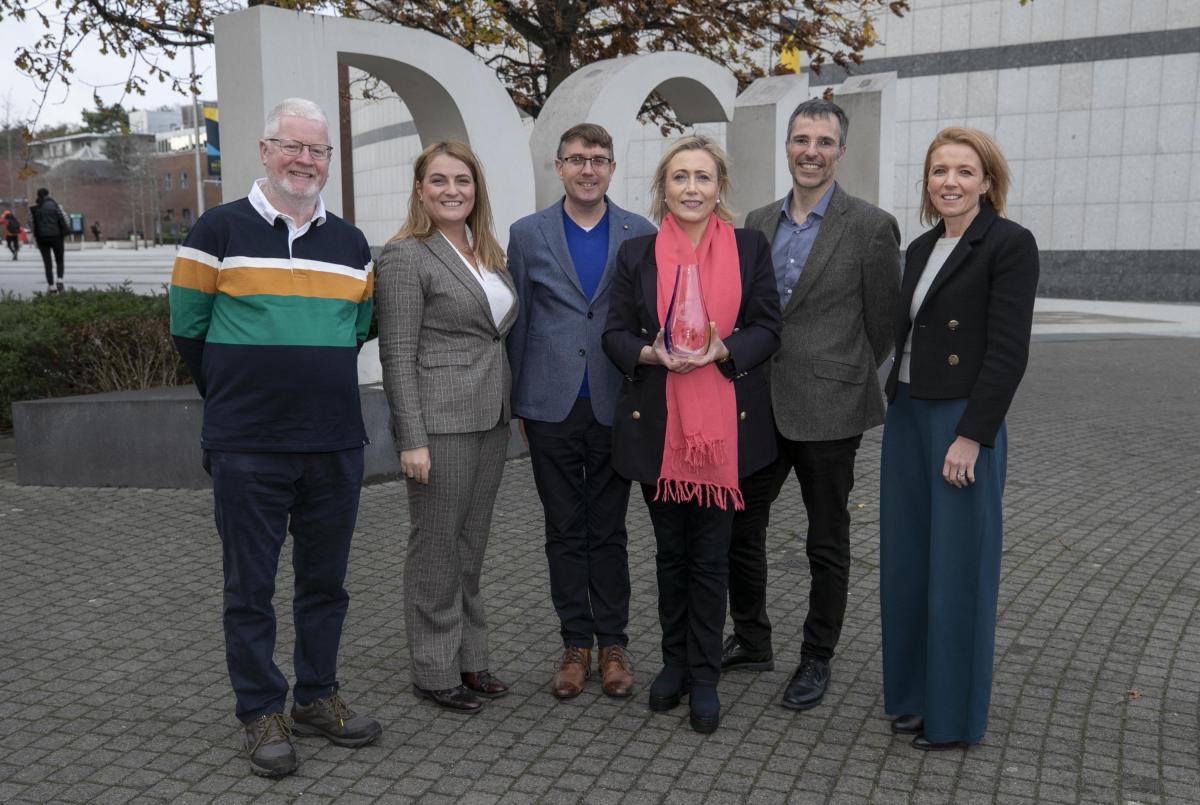
Staff from DCU's Business School with the Athena Swan Bronze Award. Pic: Kyran O'Brien/DCU

Members of DCU's School of Physical Sciences with their Athena Swan Bronze Award. Pic: Kyran O'Brien/DCU

Members of staff from the DCU School of Mathematics with their Athena Swan Bronze award
Vista Development Programme for Women
In December 2020, DCU successfully led a collaboration with the University of Galway and Dundalk Institute of Technology (DkIT) and were awarded funding under the Higher Education Authority (HEA) Gender Equality Enhancement Fund to develop Vista - a formal self-development programme for women at mid-career stage, both professional and academic, in the higher education sector.
The pilot was run in two phases throughout 2022, with a total of 15 DCU employees taking part across the two iterations of the programme. A cohort of thirty women from DCU, DkIT and University of Galway took part in phase 1 of the pilot programme from January to May 2022. A second iteration of the programme was run later in the year, from September 2022 to January 2023; again with 30 participants but this time from six institutions: DCU, DkIT, University of Galway, UCC, UL, Trinity.
The programme, facilitated by Mojo for Leaders and Carbon Coaching, consisted of three modules that focused on enhancing self-awareness, creating a mindset for growth, identifying personal and professional goals, and setting a new direction. Each participant also had a skip-level sponsor (i.e their Line Manager’s Manager) to support them through the programme.
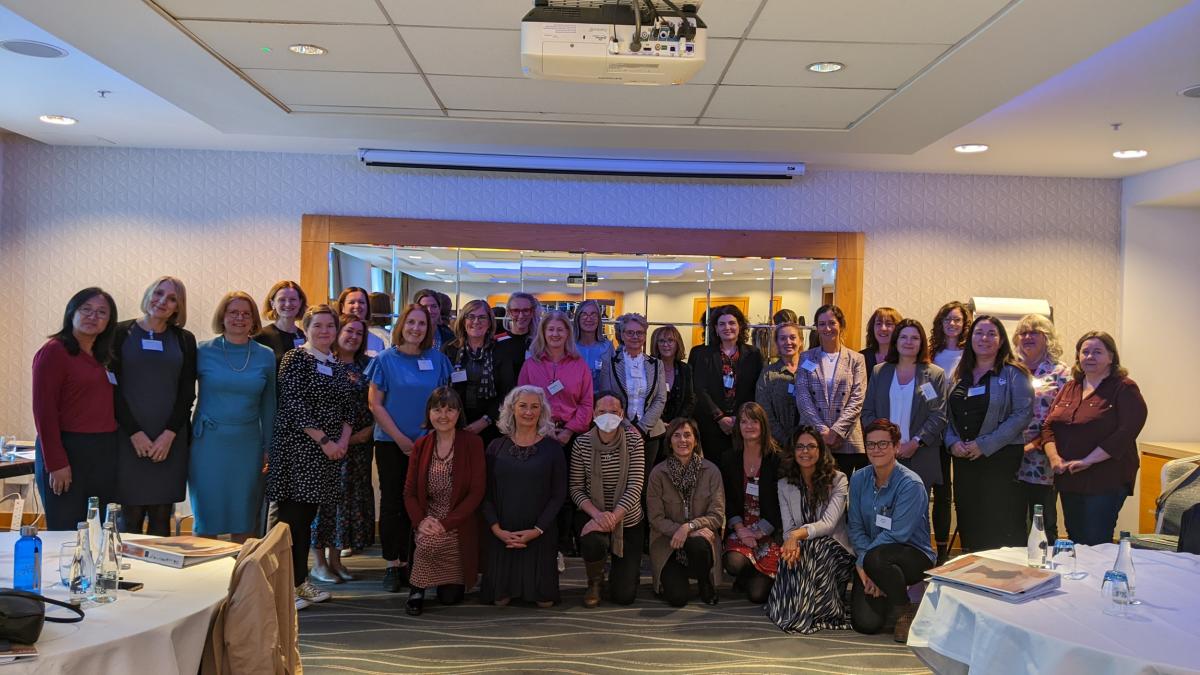
Vista Programme 2022

Paula Kierans, Health and Safety Manager
What an opportunity to connect with a group of women with vast life and career experiences. To have the time to tap into the vast knowledge, to reinvigorate and re-energise through learning what motivates me. Time to look at personal strengths when challenged, how to dig deep. Time to enhance self awareness and create a mindset of growth while keeping the inner critic at bay. The wonderful women I have met in a supportive and safe environment were invaluable.
Paula Kierans, Health and Safety Manager

Gearóidín Uí Laighléis
I really enjoyed and benefited immensely from the Vista leadership programme. As well as focusing on practical elements of leadership, the course enabled participants to develop their unique vision and enhance their leadership skills. I look forward to using the skillset I acquired from the course in my new role as chairperson of the BA in joint humanities. I'd highly recommend this course to any woman who would like to reflect on her goals and leadership skills.
Gearóidín Uí Laighléis, Assistant Professor, Fiontar agus Scoil na Gaeilge

Dr Ecaterina (Katya) McDonagh
I really enjoyed taking part in the Vista Programme. It was an excellent opportunity for me to pause and reflect on my achievements and career progress so far, plan my career objectives and goals and identify areas for further career development in the medium to longer term. Participation in the programme has also enabled me to network with women in different leadership roles from various units of the participating universities, which was a very valuable experience for me. I met a lot of interesting women and I've learned so much from their stories and advice.
Dr Ecaterina (Katya) McDonagh, Senior Research Officer, Research and Innovation Support

Dr Trudy Corrigan
In 2022 I had the opportunity to participate in the Vista Programme. What was obvious to me from the start was the energy, enthusiasm,capabilities and talents of women on the programme. What we had in common was a wealth of experience in our personal lives as well as in the professional sphere. A key focus was career identity underpinned by the personal responsibilities of many of these women either now or in the past as carers, parents and other roles. A diverse understanding of leadership was discussed and in many instances a new meaning of leadership emerged. A leadership that embraced a wider understanding of knowledge, talents and skills than can frequently be missed or not fully developed in current narratives, policy and practice across universities.
Dr Trudy Corrigan, Assistant Professor, School of Policy and Practice, DCU Institute of Education
Aurora Leadership Development Programme
Aurora, a leadership development programme for women, was designed to help address the issue of the under-representation of women in senior posts in the higher education sector. Hosted annually by Advance HE, the objective of the programme is to embed a leadership mindset whereby women identify as leaders and seek appropriate opportunities to develop capabilities, skills and networks to support them in their developing careers. In 2022, 16 women from DCU participated in the programme.
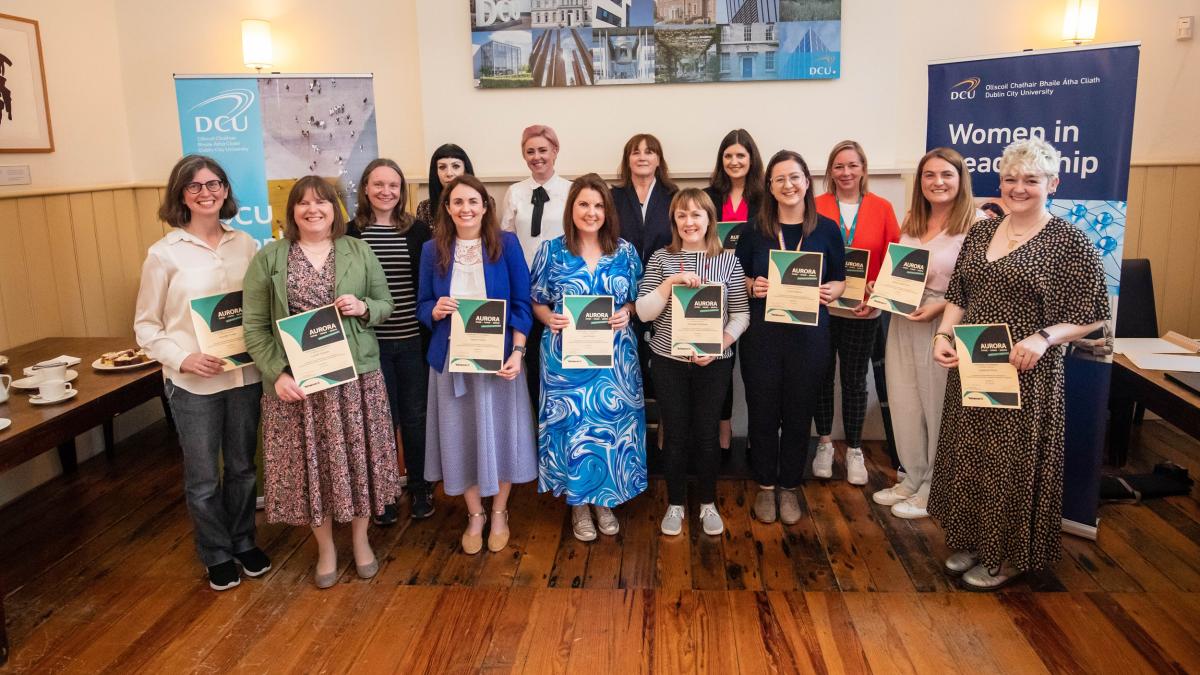
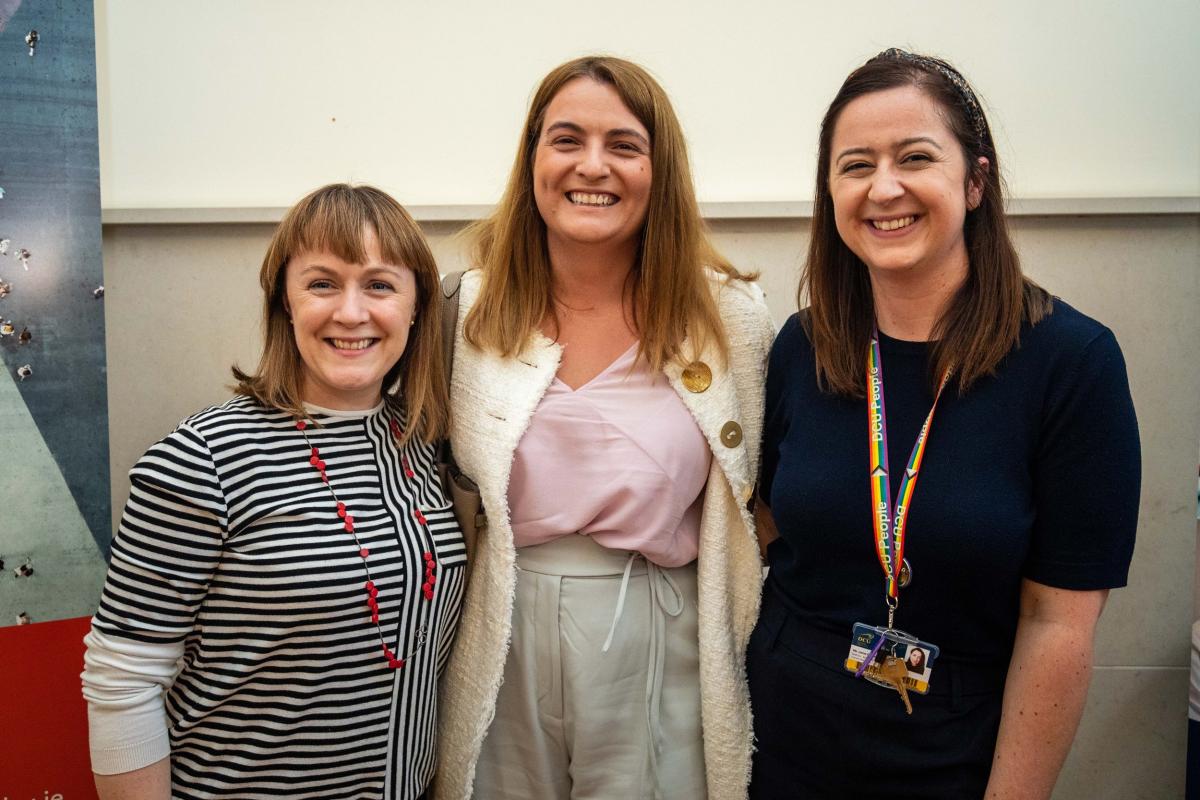


Lorna Greene
I am so glad that I completed the Aurora programme - it genuinely helped me to build my confidence and feel clearer about my career objectives. I thought all the Development Days were well delivered and had value for me both in my immediate day-to-day work but also in helping me to envision what I want to achieve in the future. I would recommend Aurora to anyone who is at an early career stage and wants to develop their leadership style and understand more about what authentic leadership means for them.
Lorna Greene, EDI Adviser, Human Resources

Dr Louise Hopper
Taking part in Aurora exceeded my expectations. I was able to engage in meaningful discussions and collaborations with like-minded women from diverse backgrounds and settings. The interactive workshops challenged me to approach problems from new angles with the encouragement and support from members of my group as we went through the programme together. One of the most valuable aspects of the programme was the opportunity to work with a mentor. Having guidance from accomplished mentors gave me a fresh perspective on my goals and the confidence to pursue them.
Dr Louise Hopper, Associate Professor, School of Psychology

Dr Alicia Castillo Villanueva
Taking part in the Aurora programme has enabled me to strengthen my leadership skills further. It was very enriching to meet other women and learn from their experience. Attending the programme has been very positive and inspiring.
Dr Alicia Castillo Villanueva, Assistant Professor, School of Applied Language and Intercultural Studies
Preparing for Academic Advancement (PAA) Programme
In 2021 DCU was successful in our joint application for funding to run the PAA (Preparing for Academic Advancement) Programme, led by University of Limerick. Specifically designed for female academics at Associate Professor level who are ready and credible challengers for promotion to Professor, it looks to provide structured support and guidance on preparing for promotion. In 2022, five DCU academics applied for the programme, with four being successful. The 2022 programme ran from June to September, with three key modules held and a series of individual mentoring sessions.
Professorial Promotion Stats
Since the establishment of the Women in Leadership initiative in 2015, there has been an increase in female representation across academic grades, most notably at Full Professor level where female representation rose from 21% to 35% and at Associate Professor level where female representation rose from 39% to 48% across the seven year period.
In 2022, we continued to see an increase in female representation at Associate Professor (4%) level. While the number of females at Full Professor level increased in 2022, there was also an increase in the number of males at this level; meaning that there was no increase in the percentage of women at Full Professor level.
Although we witnessed a drop in female representation at Professor level (-4%), our Academic Promotions Committee (APC) will monitor this annually to ensure an upwards trend.
To ensure that we do not lose the very valuable momentum gathered since 2015. The APC will continue to review the data and any decisions that may impact progress.
After a slight decline in 2021, female representation at non-academic level (pay scale with maximum point above €70,000) has increased to 55%. An increase of 4% is also evident for male representation at non-academic level (Pay scale with maximum point on or below €70,000); reducing the gender disparity at these grades.
|
2015 |
2021 |
2022 |
2021-2022 | |||||||||||||
| Whole Time Equivalent | Percentage | Whole Time Equivalent | Percentage | Whole Time Equivalent | Percentage | Percentage Changes of Females | ||||||||||
| Male | Female | Total | Male | Female | Male | Female | Total | Male | Female | Male | Female | Total | Male | Female | ||
| Full Professor * | 42.8 | 11 | 53.8 | 79% | 21% | 44.2 | 23.6 | 67.8 | 65% | 35% | 49.1 | 26.2 | 75.3 | 65% | 35% | 0% |
| Professor ** | 14 | 8 | 22 | 64% | 36% | 21 | 14 | 35 | 60% | 40% | 23 | 13 | 36 | 64% | 36% | -4% |
| Associate Professor *** | 49 | 31 | 80 | 61% | 39% | 77 | 63.2 | 140.2 | 55% | 45% | 71 | 66 | 137 | 52% | 48% | 3% |
| Assistant Professor **** | 111 | 129 | 240 | 46% | 54% | 188 | 237.15 | 425.36 | 44% | 56% | 186.6 | 229.15 | 415.75 | 45% | 55% | -1% |
|
2015 |
2021 |
2022 | 2020-2021 | |||||||||||||
| Whole Time Equivalent | Percentage | Whole Time Equivalent | Percentage | Whole Time Equivalent | Percentage | Percentage Changes of Females | ||||||||||
| Male | Female | Total | Male | Female | Male | Female | Total | Male | Female | Male | Female | Total | Male | Female | ||
| Pay Scale with maximum point above €70,000 | 25 | 29 | 54 | 47% | 53% | 57 | 60 | 117 | 49% | 51% | 59 | 70.7 | 129.7 | 45% | 55% | 4% |
| Pay scale with maximum point on or below €70,000 | 106 | 227 | 333 | 31% | 69% | 143.7 | 345.4 | 492.7 | 30% | 70% | 160.3 | 316.2 | 476.5 | 34% | 66% | -4% |
WiL: Senior Academic Leadership Initiative
The Senior Academic Leadership Initiative (SALI) aims to accelerate progress in achieving gender balance at the senior academic level in higher education. DCU has been successful in recent years with three applications for funding for SALI positions; in the areas of Sustainable Finance, Plasma Physics and Computing. These positions have supported us in addressing the gender disparity at senior academic level; and supported us in increasing the number of female Full Professors from 21 (2020) to 26 (2022).
As an employer of over 1,700 whole time equivalent employees, this was the first time DCU has been required to publish a Gender Pay Gap report in accordance with the Gender Pay Gap Information Act 2021.
The Gender Pay Gap is the gap between the average hourly wage of men and women across a workforce. It is expressed as a percentage of men's pay. It does not indicate or identify discrimination, or bias, or a pay equity issue, or an imbalance in the university’s pay structures and policies.
DCU as a public sector employer has salary scales and hourly rates of pay for specific roles/grades and work. We pay all our employees in line with their qualifications and experience, irrespective of gender. We are consistent and transparent in our pay determination procedures, which we use to ensure there is no unequal pay or unconscious bias. In this regard, we believe we are an equal and fair employer.
This initial report is an important resource for the University and will help inform future actions related to the University's EDI work. Gathering this data helps to deepen our understanding of where there are areas for improvement but also where our current initiatives are working well and achieving positive results.
Our report is based on snapshot data as of 30th June 2022. It covers payments made to those employed on 30th June 2022, during the 12 month period July 2021 – June 2022. Our overall gender pay gap is 10.45% and when we adjust to look at salaried staff it reduces to 9.51%. We are, therefore, below the national gender pay gap average of 11.3%.
Addressing DCU’s Gender Pay Gap is not something that can be done quickly or by the introduction of a single measure. Rather it is a multifaceted journey of continuous improvement, involving practical steps to remove barriers that women may face, as well as changing attitudes and behaviours through the engagement of our full community. By placing diversity and inclusion as a priority in all people matters, we aim to improve the diversity of our organisation across all levels.
As in 2021, the LGBTQ+ Pride flag was raised and flown across all campuses. Many thanks to our colleagues in the Security and Estates Teams for their help with this.
Free DCU Pride lanyards are available for collection from Reception at all times during the year. Thank you to our colleagues who work on Reception for their help with this.
Facilitated by ShoutOut, this session looked at the history and meaning behind Pride and why it is still such an important movement for LGBTQ+ communities in every corner of the world. The session explored:
-
Histories of queer culture and expression.
-
Allyship at Pride - holding a meaningful role in the celebrations.
-
Pride as a global movement for change by LGBTQ+ communities.
-
Pride as protest: examining the pressing community issues of today.
This workshop took an in-depth look at the issues facing Trans people in Ireland and included a discussion on what actions we can take both individually and collectively to combat homophobia, transphobia and biphobia in our University community and wider society.
We were honoured to be joined by one of Ireland's most high profile LGBTQ+ campaigners, Rebecca Tallon de Havilland for a lunchtime seminar. During this very moving and inspirational session, Rebecca spoke with DCU's own Barry Mulcahy (Head of Learning and Organisational Development) about her LGBTQ+ activism and campaigning work as well as her personal experiences as a trans woman and human rights advocate.
Facilitated by ShoutOut, this session looked at the history of the LGBTQ+ movement in Ireland. Topics covered include:
-
LGBTQ+ figures in Irish history, the diaspora and revolutionary movement.
-
The beginnings of Pride in Ireland; protests and Irish queer life in the mid-20th century.
-
Histories of queer culture and expression.
-
HIV and AIDS: the impact on the Irish LGBTQ+ community.
-
Milestones in Irish LGBTQ+ equality, 1970 - 2022, and how they were achieved.
-
Moving forward: what the LGBTQ+ community are fighting for today
In 2022 the EDI Team were delighted to strengthen our eLearning offerings for all staff at DCU.
Let's Talk About Race
This online module is an important resource developed for use in all Higher Education Institutions across Ireland. Let's Talk About Race supports staff to improve their awareness of the reality of racism in Ireland including within HEIs and provides learners with tools and actions to be actively anti racist. This module has been developed in partnership with other higher education institutions in Ireland and is a follow-on resource from the online EDI in HE training that was launched last year.
Unconscious Bias Training
Find out how unconscious bias can impact our behaviours and decision making processes and learn what steps you can take to ensure that unconscious bias is addressed within your working practices. This training is essential for those with managerial responsibilities and all interview panellists.
EDI in HE
This online learning resource contains four modules covering the key aspects of equality, diversity and inclusion in a higher education context. This is essential e-learning for all DCU staff.
DCU Staff Bystander Intervention Programme
Through the four online modules, you will explore definitions of sexual harassment and consent, how to overcome barriers to intervention, and how to intervene safely if you witness problematic behaviour.
Alongside our 2021 training opportunities (Trans Awareness, Autism Awareness, LGBTQ+ Allyship), in 2022 the HR EDI Team launched a number of new EDI training experiences for DCU staff. Engagement with these opportunities was extremely positive and throughout 2022, we delivered EDI training to over 530 attendees. We would like to thank all staff who attended the sessions and engaged with these important topics. We would also like to thank all of our facilitators who brought their expertise and knowledge to the sessions and created safe spaces for discussion.
In collaboration with the DCU School of Inclusive and Special Education, the HR EDI Team were delighted to offer free Irish Sign Language (ISL) Courses to all DCU staff. Each ISL course is made up of four x 1 hour classes, delivered once a week in person. Participants could take part in courses on either Glasnevin Campus or St Patrick's Campus.
Through this short four hour course, DCU staff are introduced to Irish Sign Language (ISL) and will learn the fundamentals of the language including:
- a short history of ISL
- the ISL alphabet
- how to introduce yourself in ISL
- how to describe your family in ISL
- how to describe your daily routine in ISL
These workshops introduced the concept of neurodiversity and explored what and who the term encompasses as well as an overview on how to talk about neurodiversity, and the strengths and challenges for neurodivergent people. The workshop enhanced participants’ understanding of neurodiversity with specific focus on:
- an overview of neurodiversity with a brief introduction to conditions, strengths and challenges
- neurodiversity within the college environment
- the benefits of working with someone who is neurodivergent
- understanding how to reduce barriers to neurodiverse students participation in the third level
This interactive workshop covered important allyship techniques that DCU staff can use to make our university community more inclusive. Participants were supported to develop deeper conversations around nuanced EDI topics. Participants gained insight into how to recognise when they have power and influence, when they can best act as an ally and learn how to take effective action to make their campus an inclusive place for everyone.
Menopause, which was once a taboo and stigmatised topic, is starting to be more openly spoken about in society and in the workplace. It is important that managers know how to support colleagues who may be experiencing menopause. Through this informative and interactive online Menopause Awareness Workshop for Managers facilitated by Loretta Dignam, Founder & CEO of The Menopause Hub, participants were supported to gain an understanding of:
- The importance of talking about the menopause
- What you need to think about as a manager in order to be menopause friendly in the workplace
- The essential knowledge and skills you need as a manager to give you the confidence to support your colleagues on a range of important issues related to menopause
Every member of the DCU community has a right to flourish in an environment that is safe and respectful, and the University remains absolutely committed to the implementation of all elements of the National Framework for Consent in Higher Education. In 2022, the University continued its extensive work in implementing DCU’s Action Plan to Tackle Sexual Violence and Harassment. This is ongoing work and will continue into 2023 and beyond.
National Survey of experiences of sexual violence and harassment in higher education
Minister Harris published reports on the National Survey of experiences of sexual violence and harassment in higher education. The surveys were commissioned within the Government’s Framework for Consent in HEIs (2019), which aims to support the creation of campus cultures which are ‘safe, respectful, and supportive’. The survey points to positive developments across the sector, but the levels of sexual harassment experiences by students and staff across Ireland who responded to the survey are troubling.
Sexual Violence and Harassment Implementation Plan for Higher Education 2022 – 2024
New Sexual Violence and Harassment Implementation Plan for Higher Education 2022 – 2024. DCU’s existing plans and actions were updated to reflect this new resource. All staff were encouraged by Professor Daire Keogh, DCU President to visit the DCU Consent Framework webpage, and engage with training resources relating to consent, sexual harrassment and sexual violence.
DCU Speak Out Tool
The DCU Speak Out Tool allows any staff, student or visitor at DCU to anonymously disclose incidents of unacceptable behaviour such as bullying, harassment, and sexual misconduct. As Speak Out is completely anonymous, the University will have no way to identify or make contact with any individual who chooses to submit a report. While the tool is anonymous, it will direct you to appropriate supports and provide you with information on what formal reporting procedures are available.
The Public Sector Equality and Human Rights Duty is set out in section 42 of the Irish Human Rights and Equality Commission Act 2014. Under the Duty all public bodies in Ireland have a legal obligation to promote equality, prevent discrimination and protect the human rights of their employees, their customers, their service users and anyone else affected by their service.
DCU takes its obligations under the Duty very seriously and in 2022, the university undertook a comprehensive internal consultation exercise to assess the human rights and equality issues that are relevant to our functions. This included focus groups with staff as well as participating in national assessment exercises to establish a foundation for ongoing activity. These assessments will inform work during 2023 to address issues identified including through the University’s strategic plan. This work will be led by the Cheif Operations Office with support from key areas across the university. Regular updates will be provided to the DCU Equality, Diversity and Inclusion Committee (sub-committee of Governing Authority).
DCU has been an Age-Friendly University since 2012 and in that time DCU has been at the forefront of promoting and building an Age-Friendly University Global Network to over 100 universities across Europe, North and South America, South East Asia, and Australia.
The AFU programme engages older people and promotes intergenerational and intercultural engagement as well as lifelong learning. These activities encourage social inclusion, combat isolation and loneliness, and contribute to ensuring older people have an input into decision-making at a national and EU level.Age discrimination represents a key intersectional issue. People can face a particular disadvantage at the intersection of two or more attributes.The AFU Programme adopts an intersectional approach and provides opportunities to challenge discrimination by helping to increase age diversity in DCU.
During 2022, highlights from the Age-Friendly University programme included:
- Taste of DCU 2022: A showcase event involving over 50 DCU staff and 250 + older people highlighting educational, research, wellness, social and cultural opportunities to engage with DCU
- UN Day of Older Persons 2022 (October 1st): A celebration of the 2022 theme “The Resilience of Older Persons in a Changing World”
- Positive Ageing Week: A series of health-related presentations on remaining active and ageing well including a very special guest lecturer from Prof. Eric Volgelsang visiting from the University of California San Bernadino "Social Lives and Alcohol Abuse among Older Adults in the USA – a comparative study.
In 2022, The Times Higher Education University Impact Rankings 2022 placed DCU no. 8 worldwide for addressing UN SDG “Reduced Inequalities”. Their citation acknowledged DCU’s pioneering work as the first Autism-Friendly University as a key factor in this top ten ranking.
In November 2022, Mary Rose Sweeney, Associate Professor Health Systems/Public Health Research and Fiona Earley, Autism Friendly University Coordinator provided expert advice to the Oireachtas Joint Committee on Autism including the implementation of Autism Friendly Principles at DCU and the benefit of the same for DCU students.
In a major achievement for the project, in 2022, funding for the development of a quiet zone in the Henry Grattan Building was approved. This project will be underway during 2023.
Early work to develop a new 9th Autism Friendly Principle specifically for staff began in Semester 1 2022/23. This work will be further developed and implemented in Semester 2 2022/23.
To celebrate International Women's Day (8th of March) the HR EDI Team hosted a number of events to mark the day.
Women in Leadership Lecture Series
As part of the Mary McAleese Women in Leadership Lecture Series, DCU Chancellor, Brid Horan joined Prof Daire Keogh, DCU President to discuss her career, leadership journey and advice for both men and women on how to be an inclusive leader.
Women of DCU
The HR EDI Team produced a very special video celebrating the Women of DCU for International women's day. This was displayed on digital screens across all DCU campuses.
Lunch with Ted
The HR EDI Team hosted two watch parties for all DCU staff to get together and enjoy some inspiring TEDTalks that celebrate International Women's Day and remind us why it is such an important occasion for everyone.
To celebrate, the HR EDI Team were delighted to host an online lunchtime panel discussion chaired by James O'Higgins Norman, Director of DCU National Anti-Bullying Centre. James was joined by a Panel of DCU colleagues with representation from across the University. The discussion explored the themes of friendship and connections and the important role of the same in men's lives - including on their mental, emotional and physical wellbeing.
In January 2022, DCU Students’ Union and the Teaching Enhancement Unit co-hosted Accessibility Awareness Week. Throughout the week numerous events were held to raise awareness of accessibility and inclusion across the university and to encourage conversations around inclusive education.
In March 2022, DCU hosted the 'We are Here, HEAR' open-air touring exhibition on St Patrick’s Campus.
The exhibition showcased the voices and experiences of people seeking refuge in Ireland through a collection of powerful photographs and stories. We are Here, HEAR highlights some of the barriers faced by refugees and people in the asylum process aspiring to further their education by raising awareness about the presence of refugees in Ireland and bringing their voices to the forefront.
The exhibition was launched by Professor Daire Keogh, President, Dublin City University in the Seamus Heaney Theatre on St Patrick’s Campus. The event included powerful speeches, beautiful songs and moving stories. MA student Alketa Hotaj spoke about her work on this College Connect-led project and about her own experience as a University of Sanctuary student at DCU.
In April 2022, DCU was ranked the 8th best university in the world for its commitment to the UN Sustainable Development Goal of “Reduced Inequalities”. This success recognises the diversity of the DCU student body, and acknowledges DCU's pioneering work in being recognised as the world's first Autism-Friendly University. The University also scored highly on its research in addressing societal inequality and its commitment to equality, diversity and inclusion.
The University was also ranked 20th globally for gender equality, reflecting our commitment to achieving equality, diversity and inclusion for staff and students. This achievement recognises the progress made by the institution to date in addressing gender inequality in senior academic positions, its Women in Leadership suite of initiatives, and the impact of its research in the area of gender equality. Further to this, DCU is ranked Number One in Ireland for ‘Gender Equality’. This reflects our values as a public university, dedicated to the public good.

Gareth Yore, Director of HR at DCU
The Future of EDI at DCU
Equality, Diversity and Inclusion (EDI) has always been at the core of how we operate in DCU. Over the past number of years I have been delighted to see the significant growth of our EDI function to enable us to explicitly call out the importance of EDI and to work with stakeholders across the DCU community to ensure that all our activities reflect this ethos.
I am also delighted to note that Inclusivity has been added as a value in our new strategic plan Transformation for an Unscripted Future 2023-2028. I particularly welcome this development not just because it is a value that we all believe in, but because it sends an explicit message of belonging to our staff community. The message I want to convey as Director of HR is that every staff member should feel that they belong in this community and that everything you do is important.
This in turn places EDI at the forefront of everything we do. Every activity we undertake and every interaction we have with our stakeholders should reflect the value of inclusivity and the broader ethos of Equality, Diversity and Inclusion. This is a responsibility for all of us and should be complimentary to all our daily actions.
EDI will continue to play a critical function of everything we do at DCU. Not because it is a legislative or compliance requirement, but because it reflects our values, ethos and aspiration of working in an inclusive community that fosters a sense of belonging.
Gareth Yore, Director of HR at DCU
Contact information
You can contact the team by emailing edi@dcu.ie.
